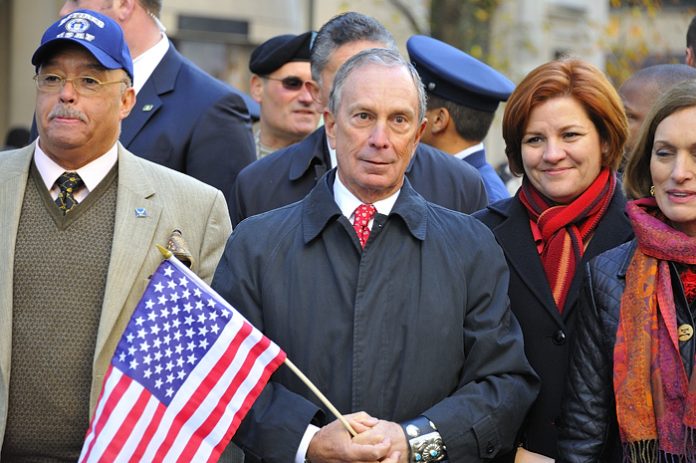During the past few weeks, two American billionaires have floated their name as presidential candidates. Howard Schultz, the founder of Starbucks, has indicated his interests in running an independent candidacy in 2020, while Michael Bloomberg, the former Mayor of New York City, has suggested he may run in the Democratic primary. At first glance, these two men seem to have a lot in common. Both of these men, who have built extremely successful businesses, are offering a message that their business skills make them uniquely poised to solve the problems facing the US while presenting a vision of fiscal conservatism and social liberalism that is popular among some segments of the educated elite, but has no traction beyond that. Additionally, both have attacked the more economically progressive elements within today’s Democratic Party. Lastly, they are both very unlikely to ever be President.
There are also some key differences between these men and their potential candidacies. Bloomberg, although not exactly a conventional politician, is not new to government. As mayor of New York for 12 years he demonstrated his competence, knowledge and understanding of governance. He also did this in the media capital of the world. Bloomberg’s policies were not always popular. His strong support for stop and frisk policing, for example, will make it very hard for him to be competitive in a Democratic primary, but few can doubt his relevant experience or intelligence. The same is not true of Schultz who sounds like a rich person who is kind of sick of politics, rather than somebody who could ever govern the country.
both of these politicians could make a greater contribution to American politics, not by running longshot bids for the Democratic Party nomination, or spoiler independent campaigns, but by challenging Donald Trump in a Republican primary
There is another difference as well. Bloomberg, who first got elected Mayor of New York as a Republican, became an independent in 2007 and would run in the Democratic primary. Schultz is a longtime Democrat who is exploring a run for office as an independent. Thus, if Bloomberg runs he will join a crowded Democratic primary field and have an uphill battle to win the nomination. Schultz, rather than engage in that very difficult quest for the Democratic nomination will, if he runs, do so as an independent candidate. He will have no chance of winning that race, but could help Donald Trump by splitting the anti-Trump vote.
There is one more critical similarity shared by Bloomberg and Schultz that tells us much about the state of American politics. As billionaires who are concerned about policies that would raise their taxes, are liberal on some social issues and understand the role government must play in solving big picture problems like climate change, they reflect the position of the Republican Party for much of the twentieth century. These two billionaires have a lot of views in common with prominent Republicans of the past like, George H. W. Bush, Richard Nixon or Nelson Rockefeller as well as more recent leaders of the GOP like Mitt Romney and even John McCain. This is particularly true of Bloomberg, who fits in very clearly with the tradition of liberal New York Republicans like Jacob Javitz, Rockefeller, John Lindsay and even Rudy Giuliani circa 1990.
Given this, both of these politicians could make a greater contribution to American politics, not by running longshot bids for the Democratic Party nomination, or spoiler independent campaigns, but by challenging Donald Trump in a Republican primary. They both have the money, good personal stories and, unlike the President, are men who worked for their fortunes and who built real and impressive companies. By running as Republicans either would be staking out a vision for a Republican Party that is grounded in the realities of contemporary America, the multi-cultural nature of our country and the existential threat of climate change, while not betraying core Republican economic ideals.
The Republican Party has not only fully capitulated to Trump, but has remade itself in his unhealthy artificially bronzed image. The GOP is no longer the party just of low taxes, but also of anger, bigotry and a principled commitment to denying realities around issues like climate change and gun violence
For this reason, the fact that neither candidate considered running as a Republican is significant. It is true that neither would have a chance of beating Trump, but it is also extremely unlikely that either will be President if they pursue the courses they are currently exploring. The reason they have both eschewed a primary challenge to Trump probably goes deeper than that. The Republican Party has not only fully capitulated to Trump, but has remade itself in his unhealthy artificially bronzed image. The GOP is no longer the party just of low taxes, but also of anger, bigotry and a principled commitment to denying realities around issues like climate change and gun violence.
The capture of the Republican Party by Donald Trump has thrown American politics into many crises, but one that is playing out in the potential candidacies of Bloomberg and Trump is that rational billionaires, admittedly an extremely small number of people, have no political home. This is only a problem because the framework and campaign finance laws in which American presidential elections occur and the campaign make it very easy for a billionaire to amplify his unpopular views and have an outsized impact on the election. This is a real danger, particularly regarding Schultz, but it is in part caused by the collapse of the Republican Party as a conservative force interested, at least somewhat, in governance.
www.lincolnmitchell.com
Follow me on Twitter at: http://twitter.com/LincolnMitchell

